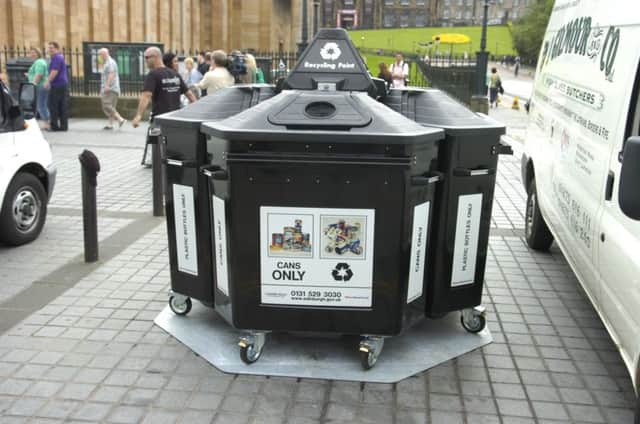This recycling idea should go straight in the bin


And recycling rates continue to improve; 70 per cent of glass bottles, 62 per cent of aluminium cans and 52 per cent of plastic bottles are now recycled, with rates for drinks containers expected to rise to 73 per cent by 2017.
The City of Edinburgh Council recently reported recycling rates had doubled in the past year; evidence that kerbside recycling works.
Advertisement
Hide AdAdvertisement
Hide AdPlans to introduce a Scottish Recycling Charter could make it even easier for people across the country to recycle by ensuring systems are clear and consistent.
But proposals by the Scottish Government, as part of wider plans to move towards a circular economy, may blow that progress off course. A deposit return system, DRS, is being considered which would make it more difficult and confusing for people to recycle. Rather than putting empty drinks cans, bottles or cartons into kerbside recycling bins, they would have to be carried back to a shop and put one by one into a reverse vending machine to reclaim a 20p deposit. They would then be recycled in the same way they are now.
The theory is a deposit would put a value on recycling, and help motivate behaviour, but the evidence shows otherwise. AG Barr has just announced it is stopping its 30p returnable bottle scheme because only one out of two people now return empty bottles. Rates declined from 90 per cent in the early 1990s and have dropped to 54 per cent since glass bottles were added to kerbside recycling, showing that customers prefer convenience
And it’s not only the inconvenience to consumers. Councils would lose the scrap value from drinks containers, estimated at £8.7 million. A reduction in kerbside recycling material could also jeopardise council contributions to national recycling targets.
In short, a DRS is a bureaucratic system that is awkward for the consumer and threatens to disrupt the existing efficient recycling system. The only real beneficiaries would appear to be the companies that supply reverse vending machines – good business for them but at the expense of consumers, industry and councils.
• Jane Bickerstaffe is spokeswoman for the Packaging Recycling Group Scotland
SEE ALSO